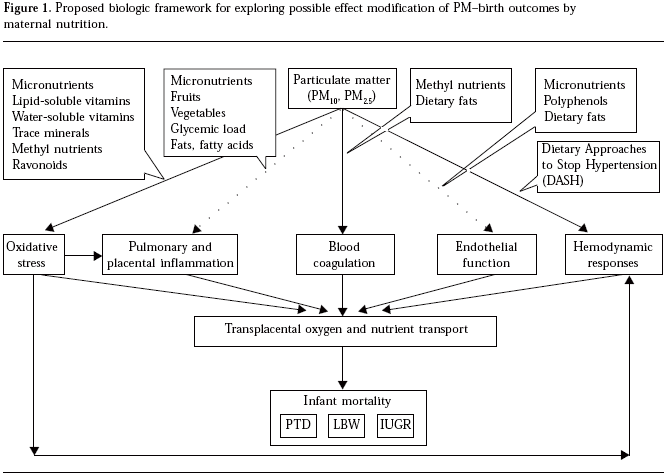This article has three objectives: to describe the biologically plausible mechanistic pathways by which exposure to particulate matter (PM) may lead to adverse perinatal outcomes of low birth weight (LBW), intrauterine growth retardation (IUGR), and preterm delivery (PTD); review evidence showing that nutrition affects biologic pathways; and explain mechanisms by which nutrition may modify the impact of PM exposure on perinatal outcomes. We propose an interdisciplinary framework that brings together maternal and infant nutrition, air pollution exposure assessment, and cardiopulmonary and perinatal epidemiology. Five possible biologic mechanisms have been put forth in the emerging environmental sciences literature and provide corollaries for the proposed framework. The literature indicates that the effects of PM on LBW, PTD, and IUGR may manifest through the cardiovascular mechanisms of oxidative stress, inflammation, coagulation, endothelial function, and hemodynamic responses. PM exposure studies relating mechanistic pathways to perinatal outcomes should consider the likelihood that biologic responses and adverse birth outcomes may be derived from both PM and non-PM sources. We present strategies for empirically testing the proposed model and developing future research efforts.
Air pollution; Biomarkers; Birth outcomes; Cardiovascular disease; Nutrition

